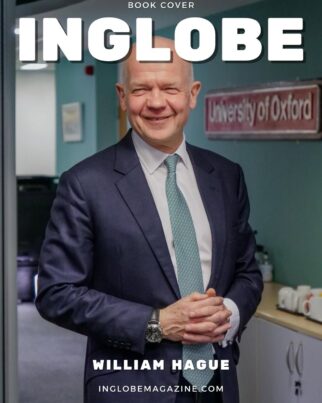An Early Prodigy with a National Stage
William Hague’s ascent to political prominence is a testament to precocious brilliance. Born in South Yorkshire, Hague’s intellectual acuity was evident early on. At just sixteen, he electrified the Conservative Party Conference with a speech that garnered national attention and foreshadowed a remarkable career in public life. His eloquence, poise, and command of policy distinguished him as a formidable orator—a rare phenomenon in British politics.
Hague’s academic excellence was no less distinguished. He attended Oxford University, where he read Philosophy, Politics and Economics (PPE), graduating with First-Class Honours. His time at Oxford honed his analytical rigor and set the stage for a career deeply informed by historical and economic context.
The Youngest Leader in Modern British Politics
Elected as Member of Parliament for Richmond, North Yorkshire in 1989, Hague’s political rise was swift. He held several junior ministerial posts before being appointed Secretary of State for Wales in 1995—a role in which he oversaw significant administrative responsibilities during a crucial period for devolution and governance.
In the aftermath of the Conservative Party’s defeat in the 1997 general election, Hague took the helm as party leader at just 36 years old. He became the youngest leader of a major political party in the UK in over a century. Inheriting a fractured and demoralized party, Hague undertook the monumental task of stabilization and renewal. While the road to electoral success remained elusive during his tenure, his leadership is widely credited with laying the groundwork for the party’s eventual resurgence.
Diplomacy and Statesmanship on the Global Stage
After stepping back from party leadership in 2001, Hague remained an influential voice within British politics. His second political act commenced in 2010, when he was appointed Foreign Secretary under Prime Minister David Cameron. In this role, he was thrust into the crucible of international diplomacy, managing complex relations during the Arab Spring, overseeing delicate negotiations on the Syrian conflict, and championing human rights and global security.
As Foreign Secretary, Hague was admired for his intellectual gravitas, strategic foresight, and dignified diplomacy. He forged robust transatlantic alliances, reinvigorated Britain’s international influence, and emphasized the importance of ethical leadership in foreign policy. His work on preventing sexual violence in conflict zones was especially noteworthy, as it demonstrated a humanitarian commitment that transcended traditional political boundaries.
In 2014, Hague transitioned to the role of Leader of the House of Commons, continuing to influence policy and parliamentary affairs with characteristic integrity and composure. Later that year, he was elevated to the House of Lords as Baron Hague of Richmond, cementing his status as an elder statesman.
A Renaissance Man: Historian, Author, and Speaker
Beyond politics, William Hague is an erudite writer and historian, authoring several critically acclaimed books, including biographies of William Wilberforce and William Pitt the Younger. His writing reflects a deep understanding of political philosophy, leadership, and moral courage, providing timeless insights into both historical figures and contemporary challenges.
Hague’s literary voice is one of clarity and thoughtfulness, and his works are celebrated for their narrative elegance and analytical depth. He has brought history to life for a modern audience, illuminating the enduring relevance of past leaders and ideologies in shaping today’s world.
As a public speaker, Hague is equally compelling. His keynote addresses at global forums, universities, and think tanks are marked by wit, wisdom, and a rare ability to distill complex geopolitical issues into accessible, thought-provoking narratives.
Championing Global Development and Conservation
William Hague’s contributions extend far beyond the political arena. He is a passionate advocate for wildlife conservation, particularly through his involvement with United for Wildlife, an initiative founded by Prince William to combat the illegal wildlife trade. Hague’s commitment to conservation underscores a broader ethical vision—one in which leadership is measured not just by policy outcomes but by the preservation of our shared global heritage.
He has also been actively engaged in promoting global development and tackling humanitarian challenges. Whether through diplomatic channels or philanthropic initiatives, Hague’s work reflects a deep belief in the power of international cooperation, ethical governance, and sustainable development.
Reflections on Leadership and Legacy
Lord Hague’s philosophy of leadership is rooted in principled pragmatism. He has consistently emphasized the importance of intellectual honesty, historical perspective, and moral clarity in decision-making. “Leadership,” he once remarked, “is not about chasing popularity—it’s about making the right choices, even when they are difficult.”
Throughout his career, Hague has demonstrated a steadfast commitment to public service, informed by a rare blend of humility and conviction. His ability to navigate the shifting sands of politics without sacrificing his core beliefs serves as an exemplar for aspiring leaders.
His legacy is one of resilience, renewal, and relentless pursuit of the common good. Whether as a youthful reformer, a statesman on the world stage, or a thoughtful chronicler of history, William Hague has left an indelible mark on Britain’s political and cultural landscape.
Advice to Emerging Leaders
To the next generation of leaders, Hague offers timeless counsel: “Understand history. Seek out truth. Serve with humility. And never underestimate the value of character in leadership.”
In an era often characterized by cynicism and short-termism, Hague’s career reminds us of the enduring power of vision, scholarship, and ethical service.
Looking Forward
As the world confronts new geopolitical realities, environmental imperatives, and social transformations, William Hague remains an influential voice advocating for thoughtful, value-driven leadership. His journey from youthful prodigy to respected elder statesman is a masterclass in dedication, resilience, and the pursuit of a more just and enlightened society.
In closing, this exclusive INGLOBE Magazine profile not only celebrates the achievements of William Hague but also invites readers to reflect on the broader themes of leadership, legacy, and the ongoing responsibility of those in power to elevate humanity through wisdom, courage, and compassion.





Leave a Reply